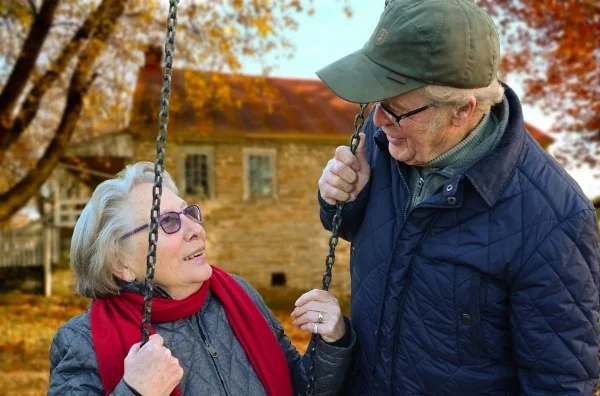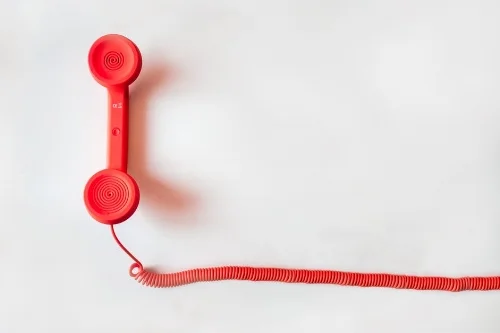This week, I’m thinking about the above quote I found via psychologist and author Nedra Tawwab.
Read MoreWe’ve gotten a lot of requests for this one.
They often sound something like: “I’m a good communicator, but it’s just that my coworker/ roommate/ mom/ boyfriend’s second cousin is awful at communication.”
But no matter how horrible of a communicator they are, you can use this trick to work within their limited communication skills and get your point across.
Mother’s Day can be a great excuse to connect with a woman who helped raise you. Of course, everyone has a different relationship with their mother (we’d love to take this opportunity to remind you of our article on metaconversations in case you think it’d be helpful to tweak something in your relationship with your mom), but for those of you who want to take the chance to get closer to the matriarch in your life, we’ve put together some questions to help create meaningful conversations that you might not have had with her before. Feel free to pick and choose the questions that feel right-- we recommend going with your intuition about what questions would work best for the kind of relationship you have with your mom.
Read MoreOkay, we’ll run with the title and make this quick. When someone new is entering your life, whether it’s a friend, a coworker, a romantic interest, or someone else you’re still figuring out how and to what extent you’d like to fit them into your life, try asking yourself:
Read More“Just be yourself!”
“Don’t worry about what other people think of you!”
“Dance like nobody’s watching!”
“To thine own self be true.”
We consume these truisms from the moment our infant brains can understand them and we don’t stop until we’ve seen one too many cliché-littered Pinterest boards. But the reality is, if you’re flailing your limbs on the dance floor without a single thought of who’s watching, or who’s within arm’s reach, you might accidentally smack someone in the face. How do you dance like you’re aware that people are watching, but you know that you’re dancing for yourself, and not for them? How can you think about the space you're taking up on the dance floor without having it affect your self-expression? How soon until we're done with this metaphor? It's important to "be true to yourself," but if you’re not thinking about how others respond to your behavior, you might be missing out on opportunities to connect, and you may even hurt others or yourself in the process.
Whether you’re looking for a good fit with a friend, a romantic partner, or even a new workplace, you’ve probably heard tips like “communication is key” and “stick with someone/somewhere that encourages you to grow” and “go with your gut.” Sometimes even those clichés can be useful, but there are some other “tells” about how any given relationship is going that can be easy to miss if you’re not looking for them, especially since they aren’t as culturally emphasized as platitudes like “follow your heart.” Of course, these aren’t going to be the *only* things you should pay attention to, but they can all be easy to overlook, particularly if you are focusing some portion of your energy on appearing desirable to the other person/ workplace/ whatever.
Five to one: According to one of the most prominent social scientists in the field of romantic relationships, John Gottman, that’s the ratio of positive to negative interactions in stable relationships. Couples were significantly less likely to get a divorce when they had about five positive interactions for every negative interaction they had.
Read MoreWhat do the following have in common?
- A “define the relationship” conversation with a crush
- Mentioning to your roommate that you never check your Facebook messages
- Telling your friend that the way he acts when he’s angry is scary to you
Have you ever felt comfortable telling something intimate to your hair stylist or bartender or ride-share driver, and then finding yourself feeling warm toward them, and perhaps inclined to tip more? Have you ever developed strong feelings for someone you were dating in a low-stakes context, like someone you knew you didn’t want to be with long-term? Then you are likely familiar with what I’ve deemed “the vulnerability paradox.” According to the vulnerability paradox, a pattern I’ve noticed in myself and others, it’s often easier to open up to those we are not relatively close to, yet, the very act of opening up brings us closer.
Read MoreCultural niceties can make it challenging to answer “How are you?” honestly if you are feeling much more than, “Fine, thanks. How about you?” If you change up the phrasing of your question even slightly, though, it can often be enough to disrupt the automatic process that leads to uninformative and uninteresting answers. Here are some options for making it easier on others to answer you honestly, even if they’re not feeling “fine.”
Read MoreWe'll cut to the chase. It’s boundaries, or more specifically, setting boundaries liberally and respecting them consistently.
Surprised? Think about it this way. Boundaries come on a spectrum, which looks different for each person-- there are smaller boundaries, which might look like, “Please lower your voice; my roommates are sleeping” and bigger boundaries, which might be more like, “Please don’t come to my house again.”
What a lot of folks don’t realize is that setting and respecting smaller boundaries are the single best way to avoid the big boundaries.
America is incredibly lonely, but social norms and the nature of loneliness, itself, can make it difficult for people to take the actions that make them feel more connected to others; loneliness can lead to a feedback loop in which feelings of isolation make you perceive the world in ways that lead you to feel even lonelier.
Since this leaves a lot of folks feeling trapped in their loneliness and unable to see a way out, we decided to develop some activities to help break the cycle.
I’ve always been a “friend-group therapist.” Even as my social network has morphed over time, the one constant is that for better or for worse, people seem to come to me for help with their struggles more often than they go to others. It’s been that way ever since I was in grade school, when my crush looked to me for advice about whether or not he should tell HIS crush that he was really into her (ouch).
Read MoreImagine you’re hanging out with a friend.
You’ve been chatting for a bit, and they reveal something more vulnerable about themselves than they usually discuss with you. Maybe it’s admitting that they feel lonely at work, or maybe it’s talking about their history with depression. Whatever it is, it’s a level or two deeper than your usual conversations.
How do you respond?
Read MoreI recently found myself in two almost identical social situations with one small difference that changed everything about the way the interaction went down.
A few months ago, I had some new friends over my house when one of my friends took advantage of a brief silence:
“Can I ask you all a weird question?”
We all nodded and leaned forward a tiny bit in our chairs.
“Is a hamburger a sandwich?”
Read More














